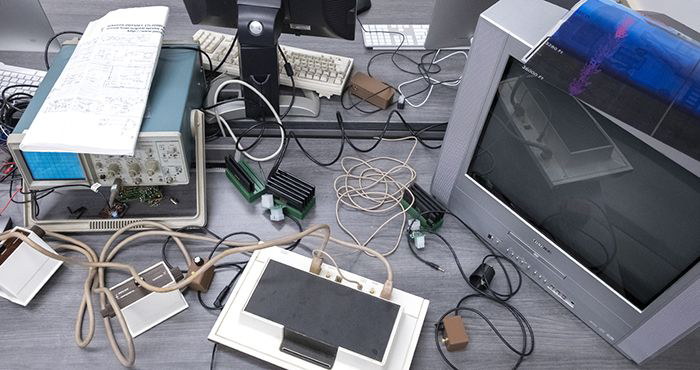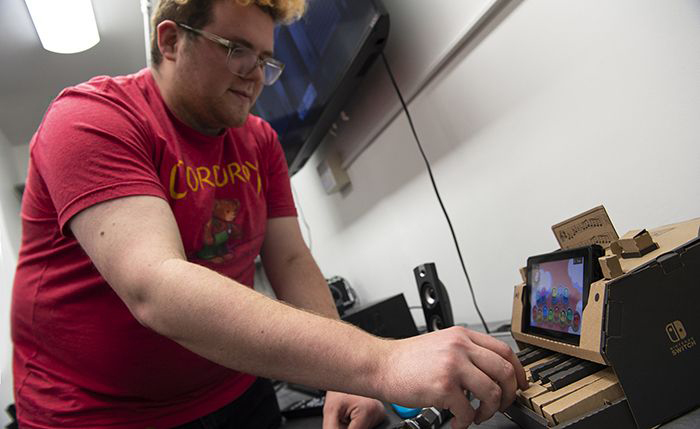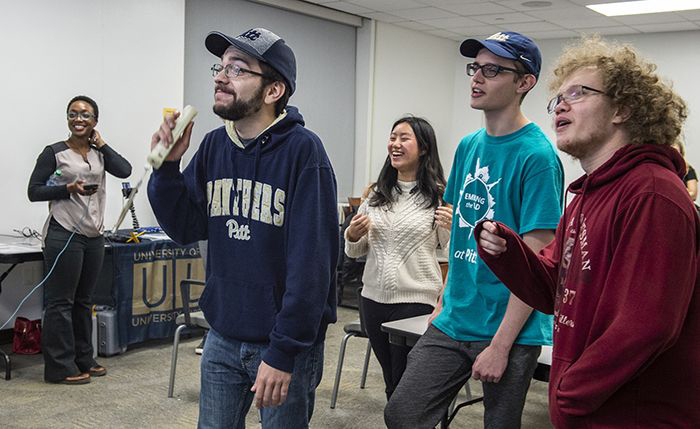
The University of Pittsburgh's Vibrant Media Lab is trying to recreate the world’s first-ever video game console — the Magnavox Odyssey, released in 1972 — and reconnect it to its original hardware.
The OdysseyNow Project will also create new games and controllers, as well as launch a comprehensive website on the console. On April 5, the lab plans to hold an Odyssey Expo, a one-day event full of competitions and project showcases, and of course, the chance for the public to experience the Odyssey.
In addition to giving people rare access to the Odyssey’s rich gaming history, lab director Zachary Horton said the project has a deeper significance.
“I think the much larger significance is to gain a tactile, concrete understanding of how our media culture has emerged, and to understand what the possibilities are,” said Horton. “That way, we can use media for positive outcomes in the future.”
According to the Smithsonian’s National Museum of American History, approximately only 350,000 units were ever sold. The console helped bring the arcade experience into living rooms for the first time, allowing players to enjoy games like tennis and hockey through their television sets.
The Vibrant Media Lab’s project will allow people to play the game console online, something that, to the best of Horton’s knowledge, has never been accomplished anywhere in the world.
The OdysseyNow Project, he said, “is about taking back a sense of autonomy and creativity in a world that seems so overwhelming and difficult on which to make an impact.”

Software developer and Pitt senior Patrick Healy plays with a Nintendo piano in the lab. Each key reflects light into a sensor in the back of the piano. “This is a lab that understands the utility of interdisciplinary work and gives resources to it,” Healy said. “I haven’t encountered too many other labs around campus that require knowledge in both the humanities and tech in a very specific way.” (Tom Altany/University of Pittsburgh)
An innovative, interdisciplinary space
Beyond OdysseyNow, the Vibrant Media Lab is a space where retro video games and cutting-edge media collide. There’s maker equipment galore: a full electronics workstation, 3D printers, even a sewing machine. Vintage gaming systems also fill the space on the fourth floor in the Cathedral of Learning, including the rare Magnavox Odyssey, the Atari system of the early 1980s, and Sony PlayStations 1 and 2.
In November, the lab hosted an event dubbed Cathedral Arcade, to spread the word to instructors and students about its resources. The event also promoted the lab as a physical space for gamers who are looking for a community.
“Video game culture can be very isolating,” said Horton. “The act of taking those experiences that are normally single-player and having them in an open environment and bringing them into a space with lots of people changes your understanding of the game experiences.”
The event brought together students of all majors, some who rarely make it to the Cathedral of Learning, like Alana Dee, a second-year electrical engineering major. “I definitely like that this is on the English Literature floor. It gets me out of my engineering building and into the Cathedral,” Dee said.

Held in November, the lab’s Cathedral Arcade event brought together students from around campus to “play for an audience.” From left, Christopher Jandreau, Ruth Li, Draven Betchel and Bryson Myers play Wii, while Tyrica Terry Kapral watches with a smile. (Tom Altany/University of Pittsburgh)
Horton started the space in January 2018 for researchers to collaborate on better understanding culture through technology. It also plays a role in the “critical making” focus of the Literature Program.
“We live in such a media-rich culture that we often fail to understand the extent to which media affects our ability to not only interact with each other and our environment, but to think,” said Horton, who’s also an assistant professor in the Department of English. “We rarely stop and ask: ‘How can I make my own game that deals with an issue I care about?’”
Students from across campus, with academic backgrounds from English to neuroscience, engineering to philosophy, are working on projects in the open-source lab.
“This lab matters because it encourages and supports interdisciplinary projects,” said Dee, who works in the lab as an electronic specialist. “It’s not just STEM research and I’m not just coding behind a computer all day. I’m always doing something with my hands, which is very, very rare for a sophomore in electrical engineering.”
To help answer complex questions of technology and culture, researchers explore past forms of media and experiment with new ones in a cultural and social context. This includes using powerful technology like virtual reality to play with the interface between a person and their environment.
“VR technology has interesting cognitive implications and also has an interesting impact when it comes to therapy and modifying one’s connection with the environment,” said Horton. “Stress and anxiety are all potentially affected by experimental use of these technologies. That’s an exciting area that we are looking into.”
Vibrant Media Lab Taking World’s First Game Console, the 47-year-old Odyssey, Online was originally published on the University of Pittsburgh website.